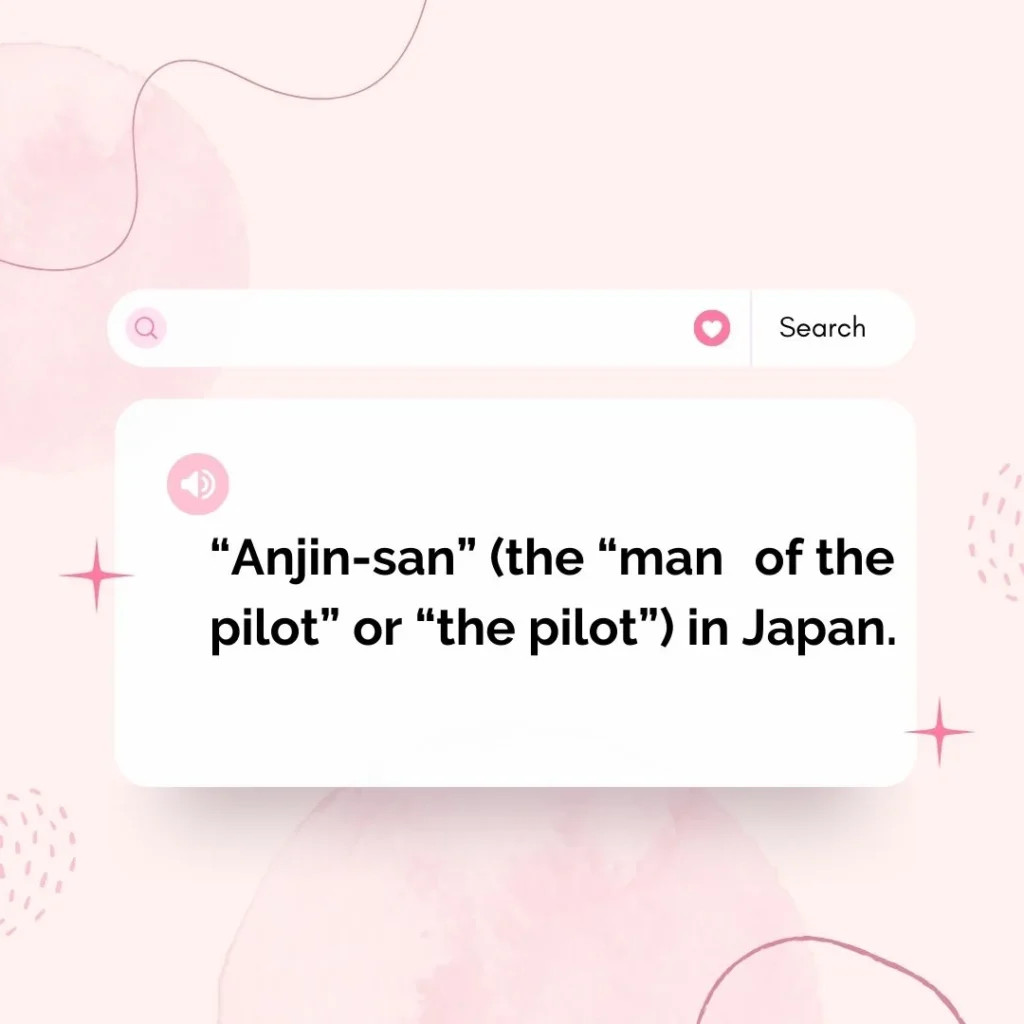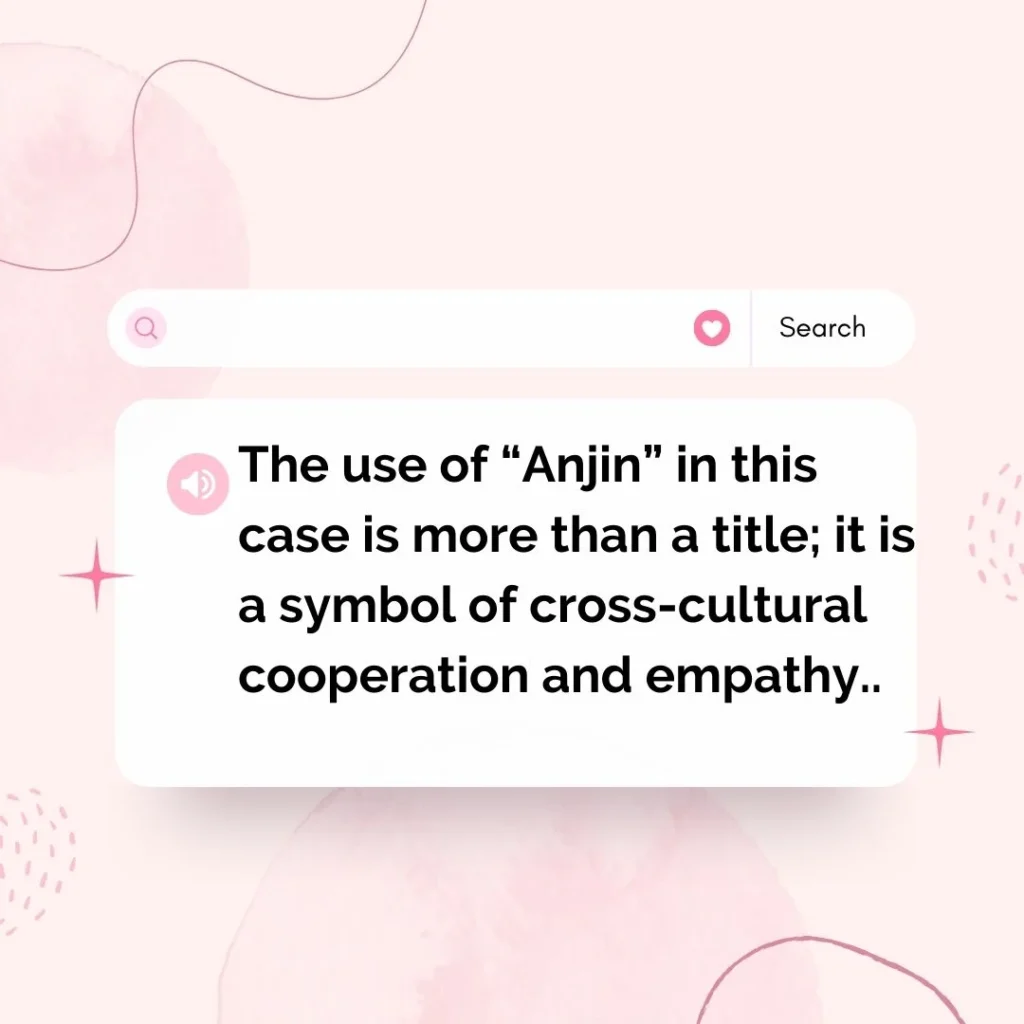Anjin Meaning: For those of you who have seen the word “Anjin” and never thought about it. 🤔 Whether you’ve read about it in a history book, are passionate about Japanese culture or just watched a lot of anime, having context for it can mean appreciating it on a whole new level.
This article investigates the real meaning of “Anjin,” the historical and cultural background of the word, and where it’s from.
From its cadence in Japanese history to its more nuanced meanings, you’ll hear a clear and clarifying critique of this fascinating term.
So, why does “Anjin” matter? Let’s jump in and find out that rich story!
What is “Anjin”?
The word “Anjin” has several interpretations according to the circumstances. In Japanese, it is frequently used to denote a pilot or navigator a person that takes the lead in guiding others through a journey, especially at sea.
But beyond this root meaning, “Anjin” has far greater cultural and historical significance.

Its most common usage is probably to describe someone who is trustworthy, competent and dependable a leader, in many respects.
It later gained international fame when it was associated with the English navigator William Adams, known as “Anjin-san” (the “man of the pilot” or “the pilot”) in Japan.
Anjin in Historical Context
The legacy of “Anjin” turns up in a few pivotal places, not least in Japan’s Edo period. The most celebrated one concerns William Adams, an Englishman who arrived in Japan in 1600.
Adams was shipwrecked on the coast of Japan and soon proved himself a confidant to the shogun Tokugawa Ieyasu.
Adams’ skills in navigation and ship construction were so appreciated that he was even granted the peculiar title of “Anjin” representative of his new position as an official advisor to the shogunate.
His impact on the technology of the Japanese navy and its strategic significance can hardly be underestimated.
In this sense, “Anjin” was more than just a navigator; he was a palimpsest of cultures, a nexus around which ideas and knowledge could flow from East to West and back again.
Cultural Importance of Anjin
There’s more to the story of Anjin than exploration of the sea. So there’s a lot of baggage in the title in Japanese culture.
To be “Anjin,” was not only a recognition of a skills, but the highest honor from the populace, or the ruling class.
The Samurai Connection
In the world of technology the word “anjin” has a double meaning. Samurai were warriors, but they were also navigators and strategists.
The term is “Anjin̄” which in this meaning represents the wisdom to rule and the discipline required to serve.
The samurai were generally considered the best pilots of the time, whether in combat or politics, so “Anjin” was a very appropriate label.
This would explain why a barbarian like William Adams could be accepted by the Japanese as a reliable “samurai”, especially because of his strategic advice and authority. He was even given a samurai title and land.
Anjin in art and pop culture
The character of “Anjin” is celebrated in literature as well. The most famous illustration of this word appears in the novel “Shogun” by James Clavell.
Taking place in the early 1600s, the book is a fictionalized retelling of the period William Adams spent in Japan. Adams is seen as the protagonist who becomes Anjin-san and symbolizes his having been chonen in Japanese society.

This depiction of Adams and his alter-ego Anjin, would solidify the word in world pop culture.
It continues to be a powerful reminder of the intricate relations that Japan maintained with the West during the early modern period.
The Shogun novel was then made into a miniseries which helped to reinforce the association between “Anjin” and its place within pop culture.
The use of “Anjin” in this case is more than a title; it is a symbol of cross-cultural cooperation and empathy.
The Anjin Connection Within the Samurai upheld Culture : Anjin Meaning
The word “Anjin” has an import beyond William Adams in samurai history and not in the esoteric what-does -the-foreign-word-mean way.
In feudal Japan, samurai were more than just fighters they were also the protectors of culture and their seniors’ strategic minds for shaping the political arena.
anjin then, in accordance with this metaphor, was leader ship or guidance towards such a goal, ideals reflected in the samurai code of Bushido.
The word implies that to be an Anjin is to lead with wisdom, whether that means steering a ship or governing a country. It embodies not only the samurai’s role as warriors, but also as leaders of people and culture.
Read FYM Meaning and How Do You Use and Avoid It in 2025
Modern Usage and Adaptations of “Anjin”
The usage and definition of “Anjin” change through time. Originally a naval or military term for a commander section or party, the term has been widely adopted in various modern contexts.
In modern Japanese, “Anjin” is virtually never used in ordinary speech, but it is widely used in names, titles, and business names.
A few contemporary references retain the term “Anjin” for symbolic reasons, reflecting a continuum from the past to the present. The term is also occasionally embraced in international business by companies anxious to convey images of dependable leadership or strategic thinking.
In the mass media, “Anjin” is still used as a symbol. It still conjures up the qualities of integrity, trust, the ability to find common cause across different cultures, and the ability to lead making it a powerful metaphore in storytelling, branding, and service design.
What Does “Anjin” as a Word Mean?
If you parse the etymology of “Anjin,” we gain an even clearer sense of its significance. The kanji that are used for “Anjin” are 安 (an) and 寝 (jin). The first character, 安, stands for “peace” or “safe” and the second character, 寝, means “sleep” or “rest.” Their combination brings a word that inspires confidence, peace, and stability–a place where you lead people to safely.

And there’s a similar.reading, too: this combination of characters harkens back to guidance or navigating leading others to safety, whether through a literal journey across the seas or a metaphorical set of obstacles.
Meaning, usage, and context of “Anjin”:
| Aspect | Details |
|---|---|
| Word | Anjin (安針) |
| Literal Meaning | “Safe needle” or “safe compass” |
| General Meaning | Ship pilot or navigator |
| Language of Origin | Japanese |
| Kanji Breakdown | 安 (An – peace/safe) + 針 (Jin – needle/compass) |
| Historical Significance | Title given to William Adams, the first Englishman to become a samurai in Japan |
| Famous Alias | Miura Anjin |
| Related Novel/TV Show | Shōgun by James Clavell (Character: Anjin-san / John Blackthorne) |
| Symbolic Meaning | Guidance, leadership, cultural bridge, spiritual direction |
| Modern Usage | Rarely used in everyday conversation; mostly in historical or literary contexts |
Let me know if you’d like a visual version of this table or if you want it translated into another language like Bengali or Japan
Principal Personages Relating to The Anjin
Indeed, though William Adams is the most well-known name associated with the term “Anjin,” there are other men with similar names and stories tied to the word.
William Adams (“Anjin-san”)
An English navigator, William Adams, was cast away on the coast of Japan in 1600. He later became the confidant of Tokugawa Ieyasu, Japan’s shogun, and was known as “Anjin-san.”
An advisor to the Tokugawa Shogunate on foreign powers, he was one of just a few to see face-to-face battles fought in Japan and around the world.
Adams’ history is significant. He not only contributed to the modernization of Japan’s shipbuilding techniques, but also served as an intermediary between Japanese and Western culture.
The Impact of “Anjin” Today
The Anjin character has had a lasting legacy on the historical consciousness of Japan, as well as its relationship with other nations.
The legacy of William Adams survives in how Japan interacted with the West during its Edo period and after.
“Anjin” in the Context of International Relations
The “Anjin” plants a foot in both Japan and the West. As part of Adams’ activities in Japan the word represents the coming together of Eastern and Western thought at a time of great importance in world history.
Adams’ life there was a testament to how cross-cultural understanding helped shape the world we live in today.
A foreigner by definition in both the realm of the seas as well as in complex cultural relations, Adams’ life’s work teaches us once again that understanding and respect have the potential to transcend even the strictest of borders.
The word “Anjin” has come to represent the interaction and interconnection between different cultures across the globe, especially through trade, diplomacy and technology in various countries.
Read ASL Meaning and Digital Etiquette for 2025
Anjin the Representation of Trust and Etiquette
The character of “Anjin” became a byword for honour and trust in modern Japanese parlance as well. In the same way as a navigator or leader, “Anjin” is someone you can trust to guide you through stormy waters.
The title suggests wisdom, responsibility, and the ability to navigate the unfamiliar waters in which to lead others safely.
This metaphoric value renders “Anjin” an effective corporate metaphor for being strategic and dependable in business and in leadership.
Conclusion
With its archaic origin and contemporary resonances, “Anjin” is burdened by a long history. It stands for something beyond a word: leadership, trust, cultural exchange.
’ “Anjin” State in literature, culture and business, Anjin stands as a powerful reminder of the guiding influence of Wisdom and mutual co-operation across borders.
The significance of “Anjin” testifies to the lasting legacy of people such as Adams, a navigator who helped chart the course of East-West relations.
If you are interested in history, in culture, and in the fascinating way in which languages develop, the word “Anjin” has an enduring significance which merits a closer look.
FAQs about “Anjin”:
What is the meaning of the name “Anjin?”
The word Anjin (安針) is a Japanese appelation meaning “pilot” or “navigator” and in particular a person who steers/charts a course for a ship.
Where does the word Anjin come from?
The word comes from Japanese:
安 (An) = peace/safety
針 = Jin = needle (as in a compass needle)
Combined, it suggests a “safe compass” or a person who safely leads a journey.
What is the best known “Anjin”?
Miura Anjin was the given name, in the 1600s, to a certain William Adams, an English sailor who went native in Japan and became a samurai. He seems to have been the first Westerner to receive official samurai status.
What does “Anjin-san” mean in the book Shōgun?
In Shōgun, Anjin-san (which means MR. Pilot” and is the English protagonist based on William Adams) (Editor’s note: It is a respectful way to refer to him.
Is “Anjin” used in modern Japanese?
In daily conversation, no. It is now mostly used in historical, literary or nautical contexts.
What is the symbolic meaning of “Anjin”?
Yes. It can symbolize:
Guidance or leadership
Trust and responsibility
A bridge between cultures
Is “Anjin” a name or a title?
Both. It was originally a navigator\’s title/role, but became a title in history (e.g., Miura Anjin).








